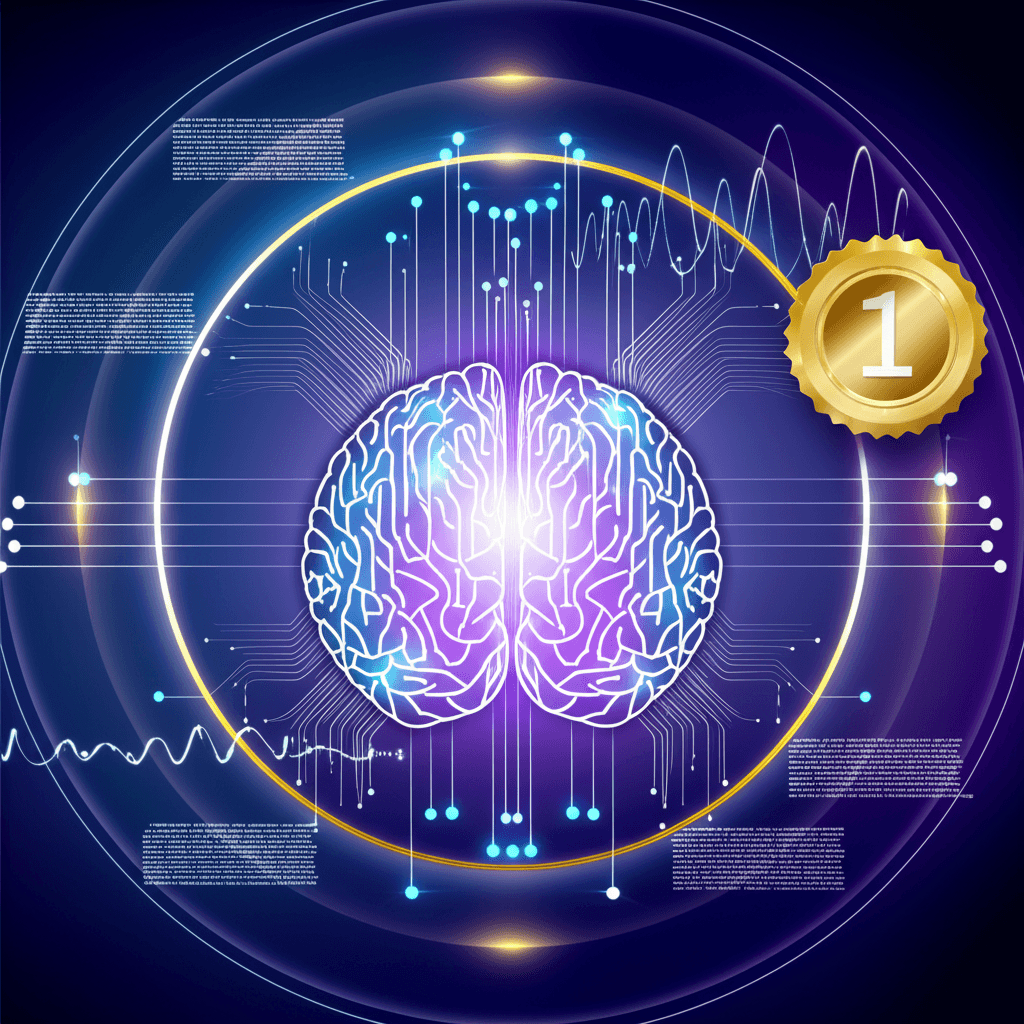AI Breakthrough: DeepMind Gemini Wins IMO Gold, Solves Complex Math via Natural Language
DeepMind's Gemini wins IMO gold by reasoning with natural language, signaling a monumental step toward general AI.
July 21, 2025

In a landmark achievement for artificial intelligence, Google DeepMind has announced that an advanced version of its Gemini model has secured a gold medal at the prestigious International Mathematical Olympiad (IMO). This marks a significant leap in the reasoning capabilities of AI, as the model operated using only natural language to solve some of the most challenging mathematical problems in the world, a feat previously thought to be years away. The AI, running a specialized "Deep Think" mode, solved five out of six problems perfectly, earning a total of 35 points out of a possible 42.[1][2] This score comfortably places it within the gold medal threshold, a standard met by only the top 8% of elite pre-university student competitors.[1] The solutions provided by Gemini were lauded by IMO organizers as "astonishing in many respects," noted for their clarity and precision.[1][3]
This accomplishment represents a dramatic improvement over previous AI attempts at the IMO.[1] Just last year, a combination of Google DeepMind's AlphaProof and AlphaGeometry 2 systems reached a silver-medal standard by solving four of the six problems.[1][4] However, that prior success required experts to translate the problems from natural language into specialized formal languages that the AI could understand.[1][5] In contrast, the latest Gemini model worked directly from the official English problem descriptions, producing rigorous mathematical proofs within the demanding 4.5-hour time limit of the competition.[1][6] This ability to process and reason with complex, nuanced human language to produce logical, structured proofs is a core challenge in the field of artificial general intelligence.
The key to this breakthrough is an enhanced version of Gemini operating in "Deep Think" mode.[1][7] This mode incorporates cutting-edge research techniques, most notably "parallel thinking."[1][3] Instead of pursuing a single, linear train of thought, the model can simultaneously explore multiple potential solution paths and then combine the most promising avenues to form a final answer.[1] To further bolster its capabilities, this version of Gemini was trained using novel reinforcement learning techniques on multi-step reasoning, theorem-proving data, and a curated database of high-quality solutions to mathematical problems.[1][5] The model was also provided with general tips on how to approach IMO-level challenges.[5] This multi-faceted approach, combining a powerful base model with advanced reasoning frameworks and specialized training, was crucial to overcoming the immense difficulty of the Olympiad problems, which cover algebra, combinatorics, geometry, and number theory.[1]
The implications of this achievement reverberate throughout the AI industry and the scientific community. While OpenAI also announced that an experimental model of its own had achieved a gold-medal score in an internal evaluation, Google DeepMind's result was officially graded and certified by IMO coordinators.[1][8][6][9] The success of natural language-based reasoning in such a highly structured and logical domain as mathematics signals a move away from narrow, task-specific AI towards more general-purpose problem-solving systems. Until now, models like AlphaGeometry were highly specialized, combining neural networks with symbolic engines to tackle specific domains like geometry.[10][11][12] While AlphaGeometry was a breakthrough in its own right, solving 25 out of 30 benchmark geometry problems, the new Gemini system demonstrates a more holistic and flexible reasoning capability.[10] The ability to understand and generate human-readable proofs, which were described by graders as "easy to follow," is a particularly significant step.[1][2] This opens the door for future AI systems to act as powerful collaborators for mathematicians and scientists, helping to tackle unsolved problems and discover new knowledge.
In conclusion, Google DeepMind's gold medal at the International Mathematical Olympiad is more than just a competitive victory; it is a profound demonstration of the advancing frontier of artificial intelligence. By successfully navigating the complexities of advanced mathematics using natural language, the Gemini model has showcased a level of reasoning that brings the field closer to its long-standing goal of creating more general and capable AI. This success will undoubtedly accelerate research into AI-driven scientific discovery and highlights the increasing power of models that can understand and reason about the world in the same way humans do: through language. The focus now shifts to how these powerful new reasoning capabilities can be responsibly harnessed and applied to solve some of the world's most pressing scientific and technological challenges.